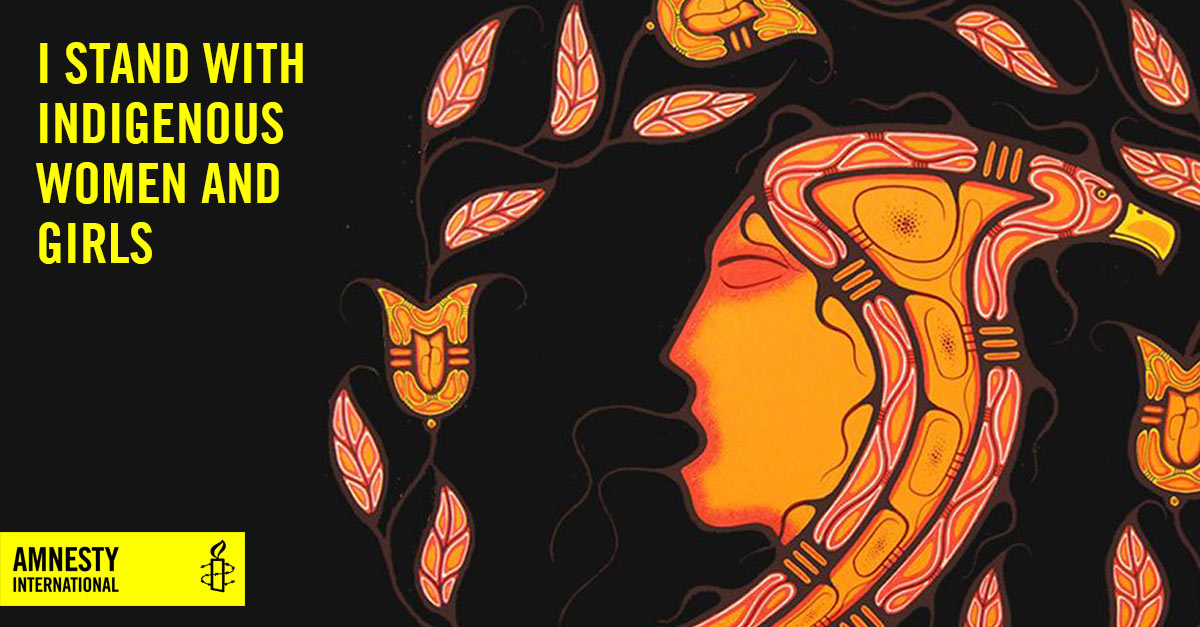PDF version
May 13, 2019
Hon. Carolyn Bennett
Minister of Crown-Indigenous Relations and Northern Affairs
Crown-Indigenous Relations and Northern Affairs Canada
10 rue Wellington
Gatineau, QC K1A 0H4
CC: Prime Minister Justin Trudeau; Minister of Justice David Lametti; Minister of International Development and Minister for Women and Gender Equality Maryam Monsef; Minister of Indigenous Services Seamus O’Regan
RE: Ending Sex Discrimination in the Indian Act
Dear Minister Bennett,
On April 12, 2019, the National Inquiry on Missing and Murdered Indigenous Women and Girls took the unique step of issuing a statement prior to issuing its Final Report. The statement called on the Government of Canada to bring the outstanding provisions of Bill S-3 into force before the 2019 federal election to end sex discrimination in the Indian Act. The Commissioners stated that “The gendered discrimination over decades has disenfranchised women from their communities, broken up families, and caused great disparity in rights and benefits as between First Nation women and men.” The National Inquiry statement echoed the same call made by First Nations women leaders on April 9, 2019 in Ottawa.
As Parties with Standing to the National Inquiry, and organizations and individuals who have been closely following the National Inquiry’s work, we are writing now to urge you to respond swiftly and immediately to this first recommendation from the National Inquiry by bringing the outstanding provisions of Bill S-3 into force before the upcoming federal election. The United Nations Committee on the Elimination of Discrimination against Women, the Inter-American Commission on Human Rights, and the UN Special Rapporteur on Violence against Women have all identified sex discrimination in the Indian Act as a root cause of the violence that First Nations women, girls, and two-spirit people experience.
The UN Human Rights Committee ruled in January 2019 that the sex-based hierarchy between s. 6(1)(a) and s. 6(1)(c), introduced by the 1985 Indian Act, and continued by the amendments of 2011 and 2017, violates the right to the equal protection of the law without discrimination based on sex, and violates the equal right of men and women to the enjoyment of Indigenous culture, guaranteed by the International Covenant on Civil and Political Rights. As the National Inquiry said in its statement “Indigenous women are independent right-holders and Canada should uphold their rights.” Recognizing Indigenous women as equal in dignity and rights is a threshold requirement for moving forward to end the crisis of violence.
This ruling from the UN Human Rights Committee comes as a result of almost fifty years of struggle by First Nation women to be recognized as equal in law. Jeannette Corbiere Lavell, Yvonne Bedard, Sandra Lovelace-Nicholas, Sharon McIvor, Dr. Lynn Gehl have all fought for equality for Indigenous women in the registration provisions of the Indian Act; it is surely time for Canada to recognize this right.
On May 3, 31 organizations and a prominent academic wrote to you requesting an official response to the National Inquiry’s final report before the House of Commons rises in June. We call on you, as a key part of this official response, to take action to bring the outstanding provisions of Bill S-3 into force before June 21. This action by your Government will show that you intend to treat seriously the National Inquiry’s recommendations. It will demonstrate to people in Canada, and especially to Indigenous women, that they have value in the eyes of your Government and are worthy of the dignity and respect that equal rights in law convey. It will empower Indigenous women in their own struggle to stop the violence.
We urge you to respond swiftly to the National Inquiry’s report by ending the sex discrimination in the Indian Act, and bringing the outstanding sections of Bill S-3 into force before the election.
Sincerely,
Aboriginal Women’s Action Network
Amnesty International Canada (English)
Amnistie internationale Canada Francophone
Awo Taan Healing Lodge Society (Alberta)
Battered Women’s Support Services
British Columbia Assembly of First Nations
British Columbia Civil Liberties Association
Canadian Feminist Alliance for International Action
Canada Without Poverty
Congress of Aboriginal Peoples
Downtown Eastside Women’s Centre
Eastern Door Indigenous Women’s Association
Ending Violence Association of British Columbia
Families for Justice
Manitoba Moon Voices Inc.
Native Child and Family Services Agencies of Ontario
New Brunswick Aboriginal Peoples Council
Quebec Native Women
Rain City Housing
Union of BC Indian Chiefs
Vancouver Aboriginal Community Policing Centre
Vancouver Rape Relief & Women’s Shelter
West Coast LEAF
Chief Judy Wilson, Neskonlith Indian Band
Dr. Pam Palmater, Chair in Indigenous Governance, Ryerson University






















